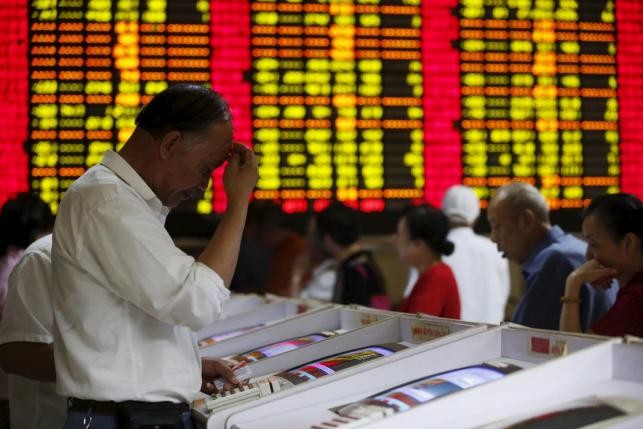Information about China Securities Finance Corp. (CSF) from mandatory shareholder disclosures revealed the trade secrets of the state-run investing behemoth, officially known in China's financial circles as the King, as shown from hundreds of Chinese companies' annual reports, Bloomberg reported.
According to the filings, the King is a top 10 shareholder in more than 600 companies and in almost all of China's biggest names in stock market.
State-owned enterprises and consumer firms that dominate benchmark indexes were reportedly favored by CSF, while it avoids small stocks with less market impact. A disciplined investor, the agency targets firms with above-average profitability and limits its holdings to about 3 percent in a company.
"It can give you a little bit more insight into what the government strategy is," Pauline Dan, head of Greater China Equities at Pictet Asset Management in Hong Kong, said. "They're not exactly very forthcoming with disclosure or what they're going to do."
CSF's practice has been looked up to by local investors looking for tailwind from state buying and for bearish traders to help them avoid betting against the agency.
State purchases and speculations of economic growth stability caused the Shanghai Composite Index to rally 16 percent from a one-year low in January, rising 0.5 percent at the close on Thursday, April 14.
"Investors keenly watch the CSF's changing positions and guess when and what it may be buying or selling," Ronald Wan, chief executive at Partners Capital International in Hong Kong, said. "The state fund has a double mission: to support the market and to make a profit."
According to the report, financial companies with heavyweight benchmark indexes are CSF's biggest holdings, which are also prime candidates for government campaigns to support the $6 trillion market.
Data compiled from about 1,500 annual reports released by Chinese companies showed that lenders, such as Industrial & Commercial Bank of China Ltd. and Agricultural Bank of China Ltd., comprised eight of CSF's 10 largest positions at the end of December.
Data further showed that more than 80 percent of CSF's 100 biggest holdings are state-owned enterprises, including CRRC Corp., a maker of high-speed trains, and it also included consumer-oriented companies, which account for nearly half of its 29 disclosed stake increases during the fourth quarter.
Based on the annual reports, CSF has 2.6 percent share in Kweichow Moutai Co. at the end of December and 3.1 percent of Inner Mongolia Yili Industrial Group Co., one of the country's biggest dairy producers.
Data revealed that the financial performance of the agency's investments are being taken care of by CSF managers as the agency's top 100 holdings have a median return on equity of 15 percent, double that of the overall market. The agency's holdings account for more than 70 percent of its disclosed portfolio.
For CSF, valuation is also important as the agency does not invest in small-cap firms as shown in the ChiNext Index, which has a price-to-earnings ratio four times higher than that of the Shanghai Composite.
Originally formed to provide margin trading and securities lending services to brokerages, CSF doubled its earnings and revenue in 2015, the Business Herald reported on Wednesday, April 13.
China Business News said that some of CSF shares have been transferred to other state-controlled entities as partial repayment for loans, which was reflected in the agency's reported holdings in corporate filings, dropping from 65 billion yuan in the fourth quarter to 550 billion yuan.
The report, however, said that investing in stocks that CSF favor does not always pay off as Chinese banks gained only 0.7 percent in mainland trading over the past three months, more 3 percentage points behind the Shanghai Composite while ChiNext reportedly rose by 11 percent.
Analysts believed that although CSF does not reveal its financial details, it had access to more than 3 trillion yuan of funding in July and another 2 trillion in August, sources said.
Bloomberg's examination revealed that one of the key findings from the annual reports showed that CSF has limited holdings for individual stocks. It favored stakes in at least 115 companies with a position not exceeding 3.03 percent of shares, which is less attractive for individual investors.
Sandy Mehta, chief executive officer of Hong Kong-based Value Investment Principals Ltd., said: "The filings might give insight into which shares may get targeted going forward. It's a must for professional investors to know the ownership structure."



























